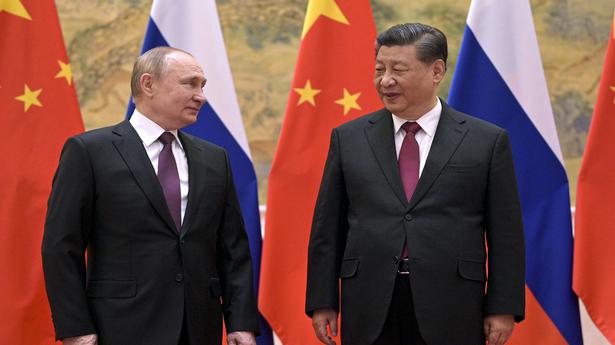
China says U.S. creating 'fear and panic' over Ukraine
The Hindu
Calls for talks to reduce rapidly escalating tensions
China on Wednesday accused the U.S. of creating “fear and panic” over the crisis in Ukraine, and called for talks to reduce rapidly building tensions.
Foreign Ministry spokesperson Hua Chunying said China is opposed to new unilateral sanctions imposed on Russia, reiterating a longstanding Chinese position.
She said the U.S. was fueling tensions by providing defensive weapons to Ukraine, without mentioning Russia’s deployment of as many as 1,90,000 troops on the Ukrainian border. Hua also did not mention efforts by the U.S., France and others to engage Russia diplomatically.
China-Russia ties have grown closer under Chinese leader Xi Jinping, who hosted Russian President Vladimir Putin at talks in Beijing earlier this month. The two sides issued a joint statement backing Moscow's opposition to a NATO expansion in former Soviet republics and buttressing China’s claim to the self-governing island of Taiwan.
“On the Ukraine issue, unlike the U.S., which keeps sending weapons to Ukraine, creating fear and panic and even playing up the threat of war, China has been calling on all parties to respect and pay attention to each other’s legitimate security concerns, work together to solve problems through negotiations and consultations, and maintain regional peace and stability," Hua said at a daily briefing.
Also read: Examining the Russia-China axis
The outcome of the Ukraine crisis is seen as having ramifications for China over its threat to invade Taiwan, a close U.S. ally, and its border dispute with India and its claims in the South China and East China seas, where it has raised concerns over conflict with Japan, the Philippines and others.

 Run 3 Space | Play Space Running Game
Run 3 Space | Play Space Running Game Traffic Jam 3D | Online Racing Game
Traffic Jam 3D | Online Racing Game Duck Hunt | Play Old Classic Game
Duck Hunt | Play Old Classic Game











